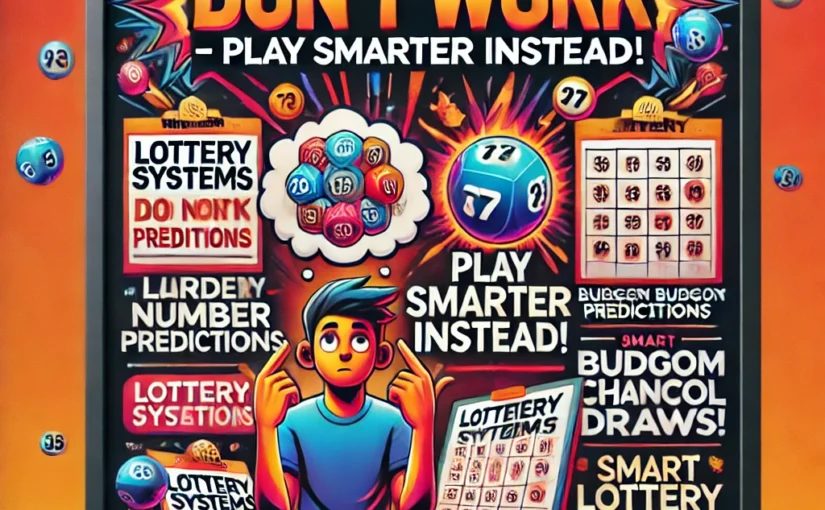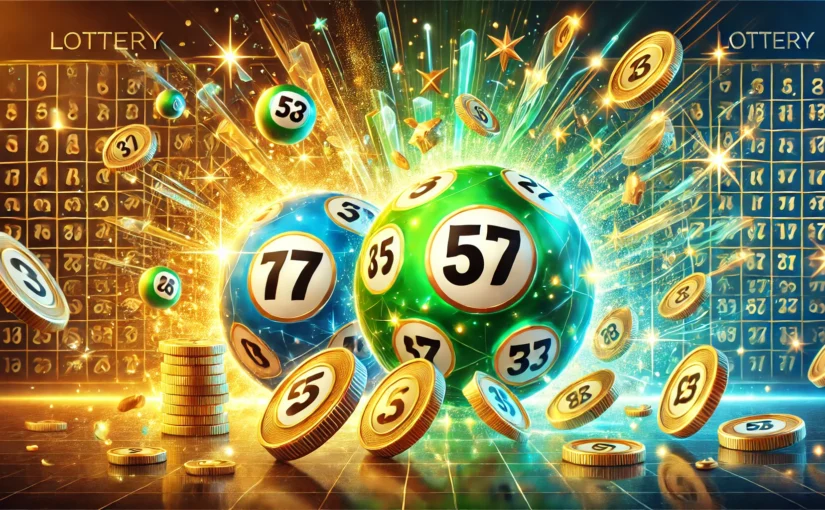Many lottery players believe in so-called winning systems—strategies that claim to predict numbers or improve your odds of hitting the jackpot. However, the reality is that no lottery system can guarantee a win.
At DEWAKOIN, we’re breaking down why lottery systems don’t work, the truth behind randomness, and what you should focus on instead to play smarter.
1. The Myth of Lottery Systems
Lottery systems claim to increase your chances of winning by using number patterns, statistical analysis, or past results. Some of the most common systems include:
✔ Hot & Cold Numbers: Choosing frequently drawn (hot) or rarely drawn (cold) numbers.
✔ Wheeling Systems: Selecting a large group of numbers and playing all possible combinations.
✔ Lucky Number Methods: Using birthdays, anniversaries, or numerology to pick numbers.
✔ Prediction Software: Computer-generated numbers based on previous draw history.
Why It Doesn’t Work: Lotteries use Random Number Generators (RNGs), meaning every draw is completely independent, and past results have no effect on future outcomes.
2. Why Lotteries Are Completely Random
✔ RNG Technology: Every lottery draw is computerized and independent.
✔ Equal Probability: Every number combination has the same chance of being drawn.
✔ No Predictable Patterns: No statistical system can track randomness in a way that guarantees a win.
Fact: The only way to increase your chances of winning is to play more tickets, but even then, the odds remain overwhelmingly low.
3. What You Should Focus On Instead
Instead of relying on faulty lottery systems, try these realistic strategies:
✔ Play Lotteries with Better Odds – Smaller games often offer better chances than national draws.
✔ Join a Lottery Pool – Increase your ticket coverage without spending more.
✔ Play Consistently, Not Randomly – While luck is always a factor, regular play increases the chance of winning over time.
✔ Use Your Budget Wisely – Avoid overspending on lottery tickets; treat it as entertainment.
Why It Works: Focusing on odds, budget control, and smarter play habits leads to a better overall lottery experience.
4. The Best Lottery Games for Real Winning Potential
✔ Pick 3 / Pick 4 Lotteries – Higher odds of winning compared to big jackpot games.
✔ Daily Draws – More frequent opportunities for small but steady payouts.
✔ Scratch-Offs with High RTP – Research which instant-win games have the best payout rates.
✔ Second-Chance Lotteries – Many lotteries offer extra draws for losing tickets.
Final Thought: The key to enjoying lottery play is understanding the odds, managing expectations, and making informed choices.
Play Smarter with DEWAKOIN!
Looking for fair and exciting lottery games with real winning potential? Join DEWAKOIN today for:
- A secure and transparent lottery platform.
- Multiple game options with high winning chances.
- Exclusive promotions and second-chance drawings.

